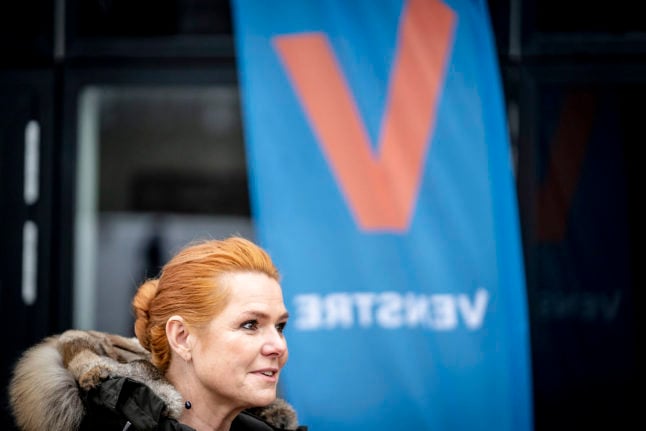The announcement comes after a majority of Liberal party lawmakers voted in favour of sending the former minister to an impeachment court over an illegal order she issued while in office.
She had previously stepped down as deputy leader of the Liberals over the issue.
“This is endlessly hard for me, but it couldn’t be any different. In the period I’m in now, being an independent is the best way I can continue to fight for the values I stand for,” she told the local Skive Folkeblad.
She also cast doubt in the interview on the Liberal party’s chances of winning an election with leader Jakob Ellemann-Jensen at its helm and said the party’s current stance on immigration was not strict enough.
“I don’t think he (Ellemann-Jensen) will become prime minister,” she said.
Støjberg and Ellemann-Jensen have repeatedly clashed as the enquiry into her illegal order and subsequent move for an impeachment trial progressed in parliament.
The former has long been a divisive figure in Danish politics, not least because of her hardline policies and often-populist image while immigration minister.
These have included publishing anti-refugee advertisements in Lebanese newspapers, posting a picture of a celebratory cake on social media after passing a 50th law curbing immigration, and a law enabling Danish authorities to confiscate valuable items from refugees.
She was, however, the architect of a successful apprenticeship scheme for refugees while immigration minister, and defended the scheme when it was attacked by the far right.
According to Danish law, she could face anything between a fine or a prison sentence of up to ten years, should the impeachment trial find her guilty.
The leaders of Denmark’s two far-right, anti-immigration parties, the Danish People’s Party and Nye Borgerlige (New Right), both said on Thursday morning that Støjberg would be welcome to join them, news wire Ritzau reported.
The former minister is not the only high profile departure from the Liberal party in recent weeks. On January 1st, former prime minister Lars Løkke Rasmussen announced he would hand in his membership, also to continue
READ ALSO: Why Denmark’s former immigration minister will face impeachment trial



 Please whitelist us to continue reading.
Please whitelist us to continue reading.
Member comments